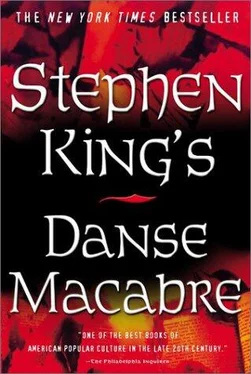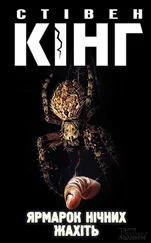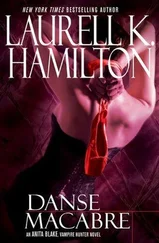With my Patty Hearst book, I never found the right way in . . . and during that entire six-week period, something else was nagging very quietly at the back of my mind. It was a news story I had read about an accidental CBW spill in Utah. All the bad nasty bugs got out of their cannister and killed a bunch of sheep. But, the news article stated, if the wind had been blowing the other way, the good people of Salt Lake City might have gotten a very nasty surprise. This article called up memories of a novel called Earth Abides , by George R. Stewart.
In Stewart's book, a plague wipes out most of mankind, and the protagonist, who has been made immune by virtue of a well-timed snakebite, witnesses the ecological changes which the passing of man causes. The first half of Stewart's long book is riveting; the second half is more of an uphill push-too much ecology, not enough story.
We were living in Boulder, Colorado, at the time, and I used to listen to the Bible-thumping station which broadcast out of Arvada quite regularly. One day I heard a preacher dilating upon the text "Once in every generation the plague will fall among them." I liked the sound of the phrase-which sounds like a Biblical quotation but is not-so well that I wrote it down and tacked it over my typewriter: Once in every generation the plague will fall among them .
This phrase and the story about the CBW spill in Utah and my memories of Stewart's fine book all became entwined in my thoughts about Patty Hearst and the SLA, and one day while sitting at my typewriter, my eyes traveling back and forth between that creepy homily on the wall to the maddeningly blank sheet of paper in the machine, I wrote-just to write something: The world comes to an end but everybody in the SLA is somehow immune. Snake bit them . I looked at that for a while and then typed: No more gas shortages . That was sort of cheerful, in a horrible sort of way. No more people, no more gas lines. Below No more gas shortages I wrote in rapid order: No more cold war. No more pollution. No more alligator handbags. No more crime. A season of rest . I liked that last; it sounded like something that should be written down. I underlined it. I sat there for another fifteen minutes or so, listening to the Eagles on my little cassette player, and then I wrote: Donald DeFreeze is a dark man . I did not mean that DeFreeze was black; it had suddenly occurred to me that, in the photos taken during the bank robbery in which Patty Hearst participated, you could barely see DeFreeze's face. He was wearing a big badass hat, and what he looked like was mostly guesswork. I wrote A dark man with no face and then glanced up and saw that grisly little motto again: Once in every generation the plague will fall among them . And that was that. I spent the next two years writing an apparently endless book called The Stand . It got to the point where I began describing it to friends as my own little Vietnam, because I kept telling myself that in another hundred pages or so I would begin to see light at the end of the tunnel. The finished manuscript was over twelve hundred pages long and weighed twelve pounds, the same weight as the sort of bowling ball I favor. I carried it thirty blocks from the U.N. Plaza Hotel to my editor's apartment one warm night in July. My wife had wrapped the entire block of pages in Saran Wrap for some reason known only to her, and after I'd switched it from one arm to the other for the third or fourth time, I had a sudden premonition: I was going to die, right there on Third Avenue. The Rescue Unit would find me sprawled in the gutter, dead of a heart attack, my monster manuscript, triumphantly encased in Saran Wrap, resting by my outstretched hands, the victor.
There were times when I actively hated The Stand , but there was never a time when I did not feel compelled to go on with it. Even when things were going bad with my guys in Boulder, there was a crazy, joyful feeling about the book. I couldn't wait to sit down in front of the typewriter every morning and slip back into that world where Randy Flagg could sometimes become a crow, sometimes a wolf, and where the big battle was not for gasoline allocations but for human souls. There was a feeling-I must admit it-that I was doing a fast, happy tapdance on the grave of the whole world. Its writing came during a troubled period for the world in general and America in particular; we were suffering from our first gas pains in history, we had just witnessed the sorry end of the Nixon administration and the first presidential resignation in history, we had been resoundingly defeated in Southeast Asia, and we were grappling with a host of domestic problems, from the troubling question of abortion-on-demand to an inflation rate that was beginning to spiral upward in a positively scary way.
Me? I was suffering from a really good case of career jet lag. Four years before, I had been running sheets in an industrial laundry for $1.60 an hour and writing Carrie in the furnace-room of a trailer. My daughter, who was then almost a year old, was dressed mostly in scrounged clothes. The year before that, I had married my wife Tabitha in a borrowed suit that was too big for me. I left the laundry when a teaching position opened up at a nearby school, Hampden Academy, and my wife Tabby and I were dismayed to learn that my first-year salary of $6400
was not going to take us much further than my laundry salary-and pretty soon I'd secured my laundry job back for the following summer.
Then Carrie sold to Doubleday, and Doubleday sold the reprint rights for a staggering sum of money which was, in those days, nearly a recordbreaker. Life began to move at Concorde speed. Carrie was bought for films; ` Salem's Lot was bought for a huge sum of money and then also bought for films; The Shining likewise. Suddenly all of my friends thought I was rich.
That was bad enough, scary enough; what was worse was the fact that maybe I was. People began to talk to me about investments, about tax shelters, about moving to California. These were changes enough to try and cope with, but on top of them, the America I had grown up in seemed to be crumbling beneath my feet . . . it began to seem like an elaborate castle of sand unfortunately built well below the high-tide line.
The first wave to touch that castle (or the first one that I perceived) was that long-ago announcement that the Russians had beaten us into space . . . but now the tide was coming in for fair.
And so here, I think, is the face of the double werewolf, revealed at last. On the surface, The Stand pretty much conforms to those conventions we have already discussed: an Apollonian society is disrupted by a Dionysian force (in this case a deadly strain of superflu that kills almost everybody-). Further, the survivors of this plague discover themselves in two camps: one, located in Boulder, Colorado, mimics the Apollonian society just destroyed (with a few significant changes) ; the other, located in Las Vegas, Nevada, is violently Dionysian.
The first Dionysian incursion in The Exorcist comes when Chris MacNeil (Ellen Burstyn) hears that lionlike roar in the attic. In The Stand , Dionysus announces himself with the crash of an old Chevy into the pumps of an out-of-the-way gas station in Texas. In The Exorcist , the Apollonian steady state is restored when we see a pallid Regan MacNeil being led to her mother's Mercedes-Benz; in The Stand I believe that this moment comes when the book's two main characters, Stu Redman and Frannie Goldsmith, look through a plate-glass window in the Boulder hospital at Frannie's obviously normal baby. As with The Exorcist , the return of equilibrium never felt so good.
Читать дальше










